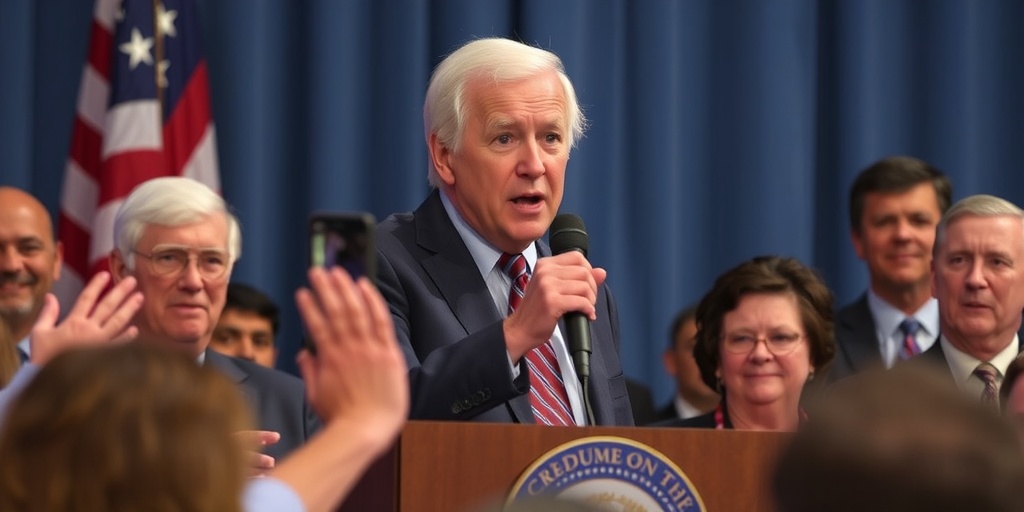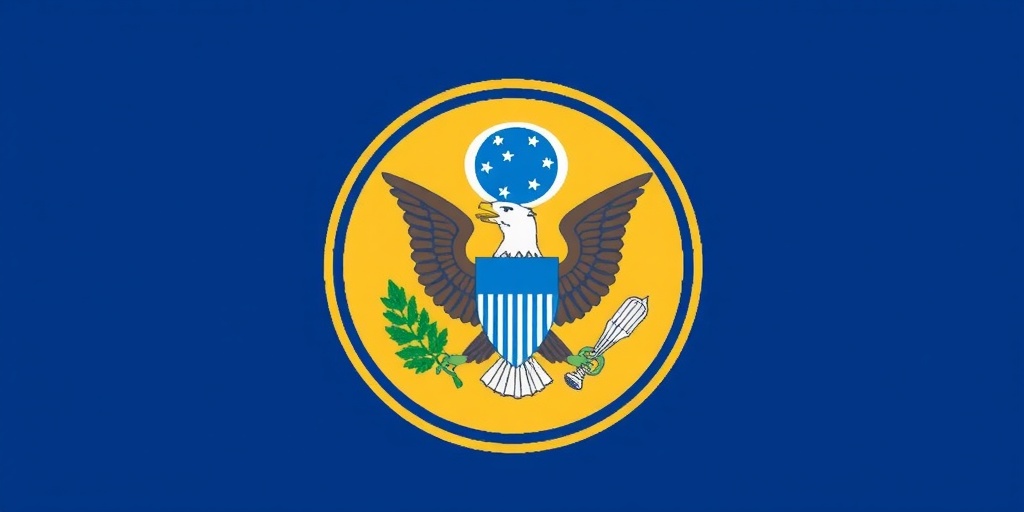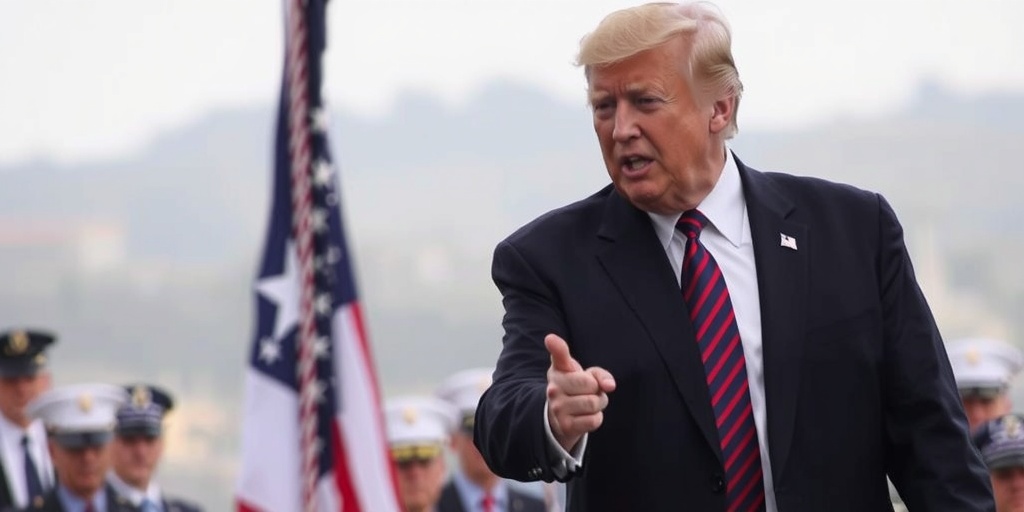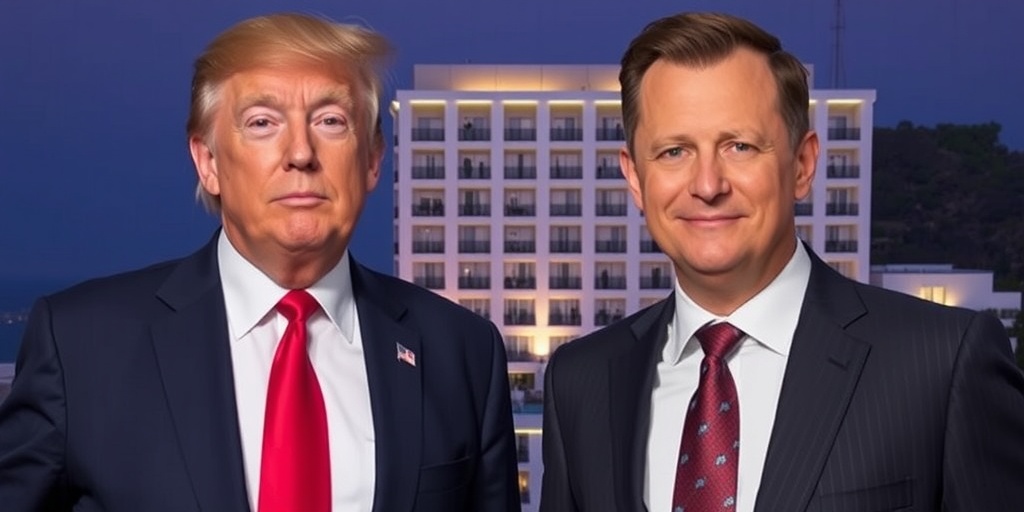Now Reading: Trump Aims for Mideast Cease-Fire Deal Before Inauguration
-
01
Trump Aims for Mideast Cease-Fire Deal Before Inauguration
Trump Aims for Mideast Cease-Fire Deal Before Inauguration
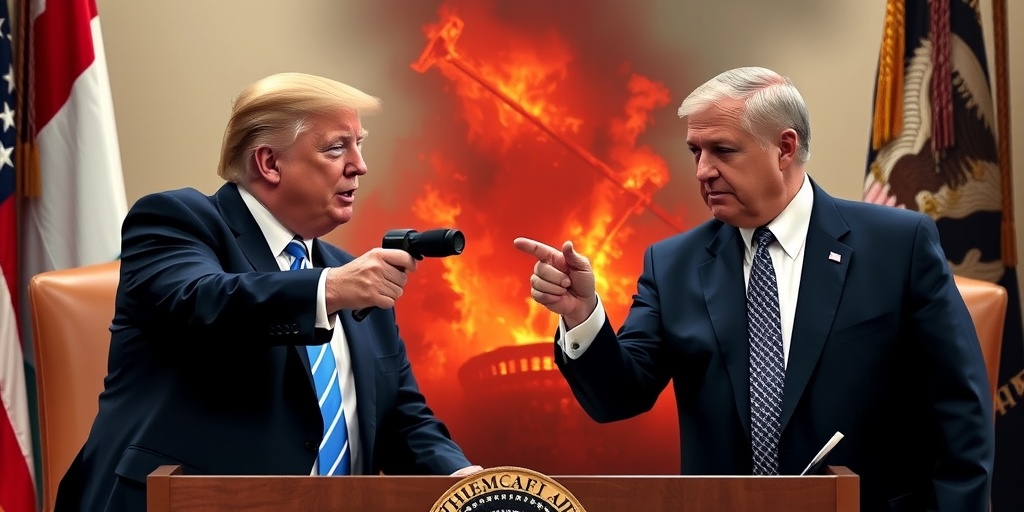
Title: Trump’s Cease-Fire Deal in Israeli-Gaza Conflict Marks Early Victory as He Prepares for Presidency
As President-elect Donald J. Trump gears up for his second term, the recent cease-fire agreement between Israel and Gaza has served as a significant milestone for his incoming administration. The cease-fire not only alleviates a major international conflict that loomed over Trump’s commencement in office but also provides him with an early triumph to showcase to his supporters, reinforcing his reputation as a deal-maker.
On Wednesday, Trump took to social media to assert that "the deal only happened as a result of our Historic Victory in November," highlighting his belief that his electoral success played a crucial role in facilitating the agreement. While the terms of the cease-fire echoed those pursued by President Biden in May, insiders have suggested that Trump’s recent electoral win and the active involvement of his transition team members were instrumental in advancing the negotiations.
The backdrop of this political development is the tragic events of October 7, 2023, when Hamas launched a series of attacks that served to catalyze international discussions regarding peace in the region. These incidents have overshadowed the upcoming U.S. presidential race in 2024, creating a complex environment for Trump’s campaign. After surviving an assassination attempt in July, Trump has not only emerged as the Republican nominee but has also witnessed a resurgence in his relationship with Israeli Prime Minister Benjamin Netanyahu. This renewal of ties contrasts sharply with Netanyahu’s earlier congratulatory message to Joe Biden after the latter’s victory in the 2020 election, a move that had previously strained their rapport.
The geopolitical landscape surrounding Trump has shifted markedly, with many foreign leaders now expressing trepidation about how his unpredictable nature may shape global interactions. Trump himself has acknowledged this perception, recently referring to his own reputation for being "crazy" and volatile. Such sentiments have sparked considerable speculation among international circles regarding the implications of his second term.
As discussions of the cease-fire continue, it is evident that the role of Trump’s Middle East envoy, Steve Witkoff, has been pivotal in achieving this breakthrough. Witkoff’s significant involvement underscores the administration’s commitment to navigate complex international issues from the outset of Trump’s presidency. The negotiation of the cease-fire not only serves to mitigate immediate tensions in the region but also sets the stage for future engagements and diplomatic efforts.
The implications of the cease-fire extend beyond the immediate territories of Israel and Gaza. By stepping into the role of broker in this international negotiation, Trump aims to position himself as a central figure in global diplomacy, significantly impacting U.S. foreign relations as he officially assumes office. The cessation of hostilities may allow him to showcase a substantial diplomatic achievement early in his term, thus providing a foundation from which to launch subsequent initiatives in foreign affairs.
However, while the cease-fire represents a moment of relief, it is essential to acknowledge the broader and more complicated realities of the Middle East. Sustainable peace often requires more than a temporary halt in fighting; it necessitates addressing the underlying political, social, and economic factors that fuel continued conflict. Trump’s administration will likely face immense challenges as it attempts to foster an enduring peace framework that satisfies all parties.
Moreover, the international community will be closely observing how Trump navigates these complex dynamics in the wake of the cease-fire. Many leaders are apprehensive about the long-term consequences of his actions, given his erratic past and impulsive decision-making history. The juxtaposition of Trump’s assertive diplomacy and the resulting uncertainties creates a charged atmosphere that underscores the importance of his approach to international relations.
As Trump embarks on his second-term journey, he finds himself in a uniquely strategic position. The Israeli-Gaza cease-fire serves not only as a significant early achievement but also as a platform to re-establish his credibility on the world stage. Balancing the expectations of his supporters with the responsibilities of leadership will undoubtedly shape the narrative of his presidency and his administration’s foreign policy direction.
Ultimately, how the cease-fire deal unfolds and its impact on future U.S. engagement in the region will play a crucial role in determining the effectiveness of Trump’s diplomatic efforts. As this chapter of his presidency begins, it will be essential to watch closely how Trump leverages this early success in his ongoing quest to redefine America’s role in the world.
Stay Informed With the Latest & Most Important News
Previous Post
Next Post
-
 01New technology breakthrough has everyone talking right now
01New technology breakthrough has everyone talking right now -
 02Unbelievable life hack everyone needs to try today
02Unbelievable life hack everyone needs to try today -
 03Fascinating discovery found buried deep beneath the ocean
03Fascinating discovery found buried deep beneath the ocean -
 04Man invents genius device that solves everyday problems
04Man invents genius device that solves everyday problems -
 05Shocking discovery that changes what we know forever
05Shocking discovery that changes what we know forever -
 06Internet goes wild over celebrity’s unexpected fashion choice
06Internet goes wild over celebrity’s unexpected fashion choice -
 07Rare animal sighting stuns scientists and wildlife lovers
07Rare animal sighting stuns scientists and wildlife lovers













